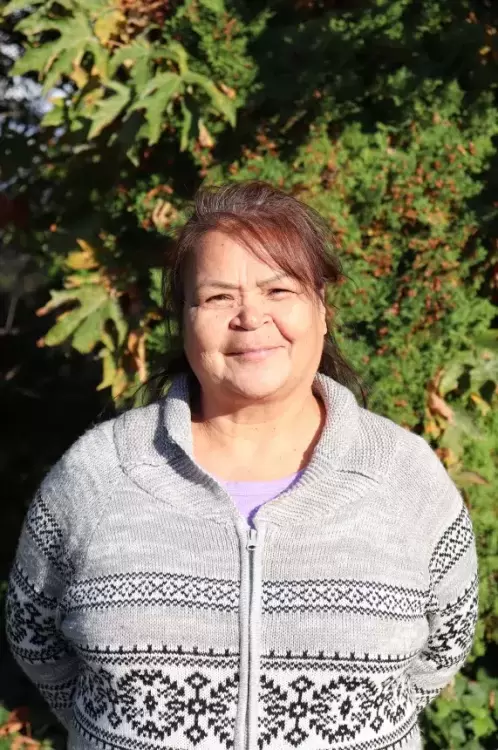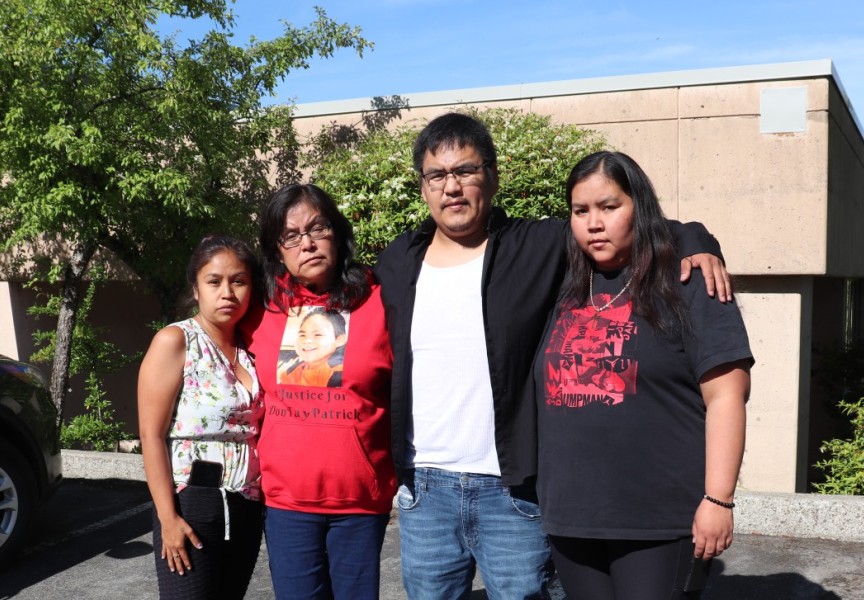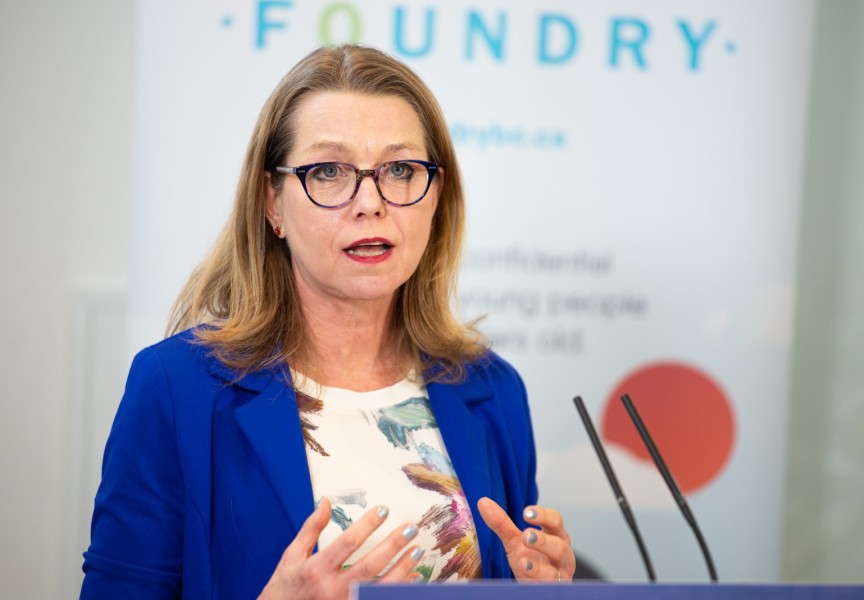October is Caregiver Appreciation Month in British Columbia and Usma Nuu-chah-nulth Family & Child Services is celebrating by delivering gift baskets to its 146 care givers. Each basket has Indigenous-inspired creations, like home-canned salmon and jam.
In previous years Usma would celebrate care givers by hosting a dinner and offering prizes and gifts. But with the pandemic still posing a danger, they had to come up with alternative plans.
Care givers - or foster parents as they are otherwise known - go through a rigorous screening process before they can open their homes to children in need. Usma has caregivers in many of the Nuu-chah-nulth communities and also in Port Alberni; but they need more.
Usma, which means "precious one" in the Nuu-chah-nulth language, is a delegated Aboriginal agency; this means that child protection services for Nuu-chah-nulth First Nations is provided by the Nuu-chah-nulth Tribal Council.
There are non-Indigenous families that provide foster care but it’s preferred that Aboriginal children in care go to Indigenous homes when possible. For that reason, there are care homes made up of extended family members of the children.
These are usually grandparents or other extended family that have stepped up to care for children in need. They are referred to as out-of-care givers that are not usually included in the Caregiver Appreciation events. This year, Usma has made the decision to recognize them.
On such home is that of Rita Watts, a Hupacasath grandmother now raising five children ranging in age from six months to 10 years.
Watts is candid about her past and why caring for foster children is important to her. She shares that she was in a relationship and her partner was fed up with her addiction to drugs and alcohol. She said that while she never considered herself an alcoholic, she didn’t realize until later that it was a problem. Her addiction to crack cocaine was more concerning.
“I would be at the crack shack four days of the week,” she admitted.
Then came the day when her partner had enough. He told her to quit or get out.
“I didn’t believe him so I went out,” she said.
The next thing she knew, her belongings had been sent to her mother’s house.
“I had to beg to get back home; I had to promise that I would give it up and get help,” Watts said.
And so, Watts began her journey to sobriety by reaching out to the NTC Quu’asa program, which uses traditional, cultural and spiritual practices to support mental and emotional healing for former residential school survivors and their families.
Through counselling work Watts said she dealt with childhood traumas.
“It didn’t bother me then, but when I realized what I had to put up with as a child I vowed it would end here,” she said.
Watts suffered abuses as a child and vowed that she would not allow those things to happen to children in her care.
Less than a year into sobriety, Watt’s son and his girlfriend had a baby. Both were drug addicted and were neglecting their child.
“The baby’s diaper was soaking wet and her bottom was bright red, so I took it upon myself and kept her,” she said.
It wasn’t long before she got a call from Usma.
“I was called to a meeting with Usma and they asked me to bring the baby,” Watts recalled.
She was livid when she learned that they would be taking the baby from her and placing her in another foster home.
“I was one angry person when I first started with them,” she admitted.
She recalls loudly cussing an Usma employee out. When things settled down, Usma contacted her again, advising her that they believed she needed to do more work since she was just starting out in her sobriety.
“I was told I needed to get more help before I could be a guardian to my granddaughter,” Watts said.
Usma provided the support she needed, getting her to Kaackamin Family Treatment Center. By going there, she was allowed to have her granddaughter with her. Watts continues to work on herself, going to counselling and a women’s group at Quu’asa.
The greatest thing about Quu’asa, says Watts, is they let you vent, they tell you to get it out of you.
“COVID sucks because I haven’t been able to go to women’s group since COVID started,” she said.
After successfully completing treatment, Watts was granted guardianship of her granddaughter, who is now a bright, happy seven-year-old.
Watts has cared for many children in her large home over the years. One of the most challenging came earlier this year when another granddaughter desperately needed her help. Watts received a call from the hospital; her newborn granddaughter was born, addicted to heroin and needed a home.
She went to the hospital to meet her granddaughter. They baby’s head was flattened on one side.
“Because the baby was high on heroin all the time, she couldn’t move enough,” said Watts, adding that the doctors hope that her head will eventually become more round.
Even worse, the doctors didn’t know if the baby would survive withdrawals.
“She was sent to Nanaimo hospital in a special ward,” said Watts.
The baby is doing much better now and lights up when her older sister comes in to chat with her.
In hindsight, Watts says she appreciates the support Usma has given her and her family.
“Usma really works with me,” she said. “When you foster children in care, Usma gives you total support – recreation, Christmas bonus, counselling, day care, anything that the child needs, they will pay for it.”
If you get guardianship of a child, there is less support.
“It’s as though they are your own,” said Watts, adding that she has guardianship of one grandchild. “It’s a god’s blessing to make sure children are safe.”
Now sober nearly eight years, Watts is confident she will never go back to addiction. “I had some triggers – the loss of my mother and brother - but I am loving life now. What happened to me as a child, I never want that to happen to any other child,” said Watts. “I wouldn’t change my life for anyone, my grandchildren are the most important things in life.”
“The sound of their laughter, just to hear them, makes me happy,” she continued. “When they’re away the house is too quiet.”
When the children are out, Watts will go with a friend to check up on the street people. She will hand out Naloxone kits, jackets, food, whatever she has to offer.
She tearfully recalled an encounter with a child hanging out at the Safe Injection Site.
“The other night, there was this girl, she looked 12, standing under the eaves at the SIS, it was raining hard,” said Watts. “We asked her if she was okay and she kept saying she was okay.”
Watts said they gave the girl a blue jacket. A day later they learned that the girl sold it to a drug dealer.
While things like this make her cry, she vows she will continue to care for children.
“I will do this ‘til the day I die,” she said.













